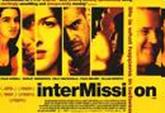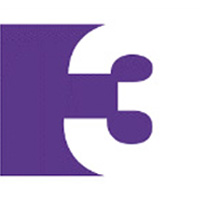(4) Interview with Perrier's Bounty, Mark Rowe
Brendan Gleeson Plays a professor of Defense Against the Dark Arts in ‘Harry Potter and the Goblet of Fire’ (2005), ‘Harry Potter and the Order of the Phoenix’ (2007), and ‘Harry Potter and the Deathly Hallows: Part I’ (2010). This makes him the first, and, to date, only actor to play a Hogwarts professor who has himself been employed as a teacher.
 |
Mark Rowe, the Dublin-born wordsmith and writer behind ‘Intermission’ and now ‘Perrier’s Bounty’, talks critics, comedy and the birth of his second crime-caper… |
Q. A gangster movie set in Dublin. Where did the idea spring from?
A. Well, the last film I did was ‘Intermission’. That was a big, sprawling multi-character piece, and, with ‘Perrier’s Bounty’ I decided to try for something more difficult, if you know what I mean? The simplest idea I could think of was, “man owes money to gangster”. That was my foundation. From there, I fleshed it out. I wanted a race against the clock. I wanted it to happen in a shorter period, across just one day. I wanted guns. I wanted it to culminate in a gun battle. But, after that, I just allowed it to breath, to develop.
Q. How long did the process take – from starting the script to the big screen?
A. Oh, about five or six years. I wrote a first draught, and though the producers I went to liked it, they couldn’t get it financed. So, it was shelved for a while. A long while, actually. And I sort of forgot about it, I moved on to other things. Eventually, the finance arrived, we dusted off the screenplay and the film got made. It took longer than I would have liked. But, you know, it’s here now.
Q. Did you write the characters with certain actors in mind? Were Brendan Gleeson or Cillian Murphy part of your original plans?
A. No. I’ve tried to write for people before and it hasn’t worked. It’s too restrictive. A character needs to have the ability to change completely over the course of a screenplay. He could start out being a single 20 year old, but end up married and in his 50s. I like making decisions as the story is progressing, and, in my experience, it’s better to tailor an actor to a script, rather than a script to an actor. The cast were terrific on ‘Perrier’s Bounty’, though. I was very pleased with how it worked out.
Q. There’s been a lot of comment on the heightened language in the screenplay; as in, you make common thugs sound like scholars. What was the thinking behind that?
A. Really? Did I? (Laughs) Eh, I suppose that’s down to my roots in theatre. Theatre language is heightened to begin with and, as a result, dialogue can be a little more expressive, articulate. I wrote ‘Perrier’s Bounty’, as I would have a play. No difference. But it was key to the comedy of the piece – and to the gags working - that the characters weren’t in on the joke. That wouldn’t have worked. In their world, this (the language) had to be everyday, the norm. And, again, the cast and director, Ian Fitzgibbon, got that spot on. When I first saw the film, the tone was almost exactly as I’d imagined it, which was great.
Q. Did you make a point of being on-set as the film was being made, re-writing the script as you went?
A. (Laughs) No, I left them well enough alone. But I was on the end of the phone if they needed me. All in all, I went to the set twice. Once for an interview, the other time I wanted to go. And it’s funny because when I got to the set I was incredibly excited, I couldn’t wait to see how it was turning out. But, then, about two hours later, I was looking for a lift home. I was bored senseless. (Laughs) There’s too much waiting around on a film set and I don’t have the patience. I was probably the most opinionated person on-set, too, and keeping those opinions to yourself is hard. You have to let the director, producers and cast get on with it, so I was better off out of their hair.
Q. It’s been very well received by critics, both home and abroad. Did you have a sense that this would work?
A. You know, not really. I was very happy with the film when I first saw it. They did a first rough cut and asked me to come and have a look. I was most nervous, to be honest, about what they cut from the script. It turned out to be only a few lines here, a paragraph there, so that was a relief. Ian (Fitzgibbon) told me it was turning out well, and he was right. I liked it. But did I know it would work? No. You never do. You just don’t know if people are going to like it. I find myself being more relaxed about the theatre, about plays. It’s more intimate. You have a smaller audience and with that comes less pressure. With cinema, hundreds of thousands of people around the world sit down on the same day to look at what you’ve created. That’s different. That’s terrifying.
Q. What’s next for you?
A. A new play, hopefully. I’ve just finished working on the adaptation of a novel for BBC and that’s coming out early next year, I think. It’s called ‘Broken’. But, besides that, I’m working away on a new play and keeping the juices flowing.
* Perrier’s Bounty is in cinemas nationwide.










